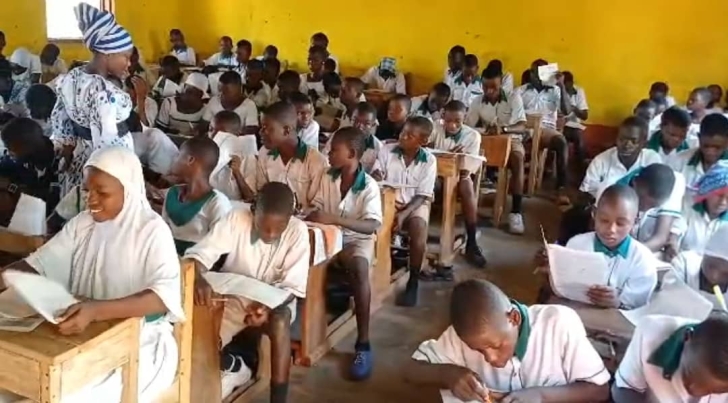
Lack of computers hamper ICT education at Bunbon R/C JHS
Pupils of Bunbon R/C Junior High School in the Yendi Municipality of the Northern Region are facing major challenges in Information and Communication Technology (ICT) education due to the absence of computers and a dedicated ICT laboratory.
The situation has raised serious concerns about their preparedness for a digital future.
Despite an enrolment of over 278 students and 13 teaching staff, the school lacks even a single computer to support the teaching and learning of ICT.
As a result, lessons are delivered entirely as theory, placing students at a significant disadvantage compared to their counterparts in better-equipped schools across the country.
The Headmaster of Bunbon R/C JHS, Mr Yahaya Aminu, said the lack of hands-on experience is undermining the quality of ICT education and negatively affecting students’ performance in the Basic Education Certificate Examination (BECE).
“Our students struggle to understand key ICT concepts, which makes it difficult for them to excel in exams and competitions,” he stated. “As a nation committed to digital learning and inclusive development, it is disheartening to see our children left behind simply because of a lack of basic resources.”
The school’s challenges go beyond ICT. According to the Assemblyman for the area, Alhassan Abu Safianu, a severe shortage of furniture is also affecting learning.
“Students are crammed into overcrowded classrooms, with three sharing a single bench or taking turns to use chairs. This disrupts lessons and creates an unconducive learning environment,” he said.
The Assemblyman further expressed concerns over the deteriorating state of the school structure, adding that the current building is both weak and unsafe. "The structure is too small, old, and weak, especially considering the student population of over 278. Some classrooms reportedly accommodate up to 72 pupils, far above the Ghana Education Service's recommended class size of 45," he explained.
Mr Safianu called on the Yendi Municipal Assembly, non-governmental organisations, and philanthropic individuals to intervene and support the school. “With the right help, these children can be part of the digital world and improve their academic performance.”
The School Prefect, N-Yiigma Mulignan Carlos, also made a heartfelt appeal: “We are Ghanaian children too, and we deserve a fair chance like everyone else. With computers and proper furniture, we believe we can do better.”
As Ghana works towards achieving the Sustainable Development Goals (SDGs), particularly Goal 4—ensuring inclusive and equitable quality education—the plight of Bunbon R/C JHS highlights the urgent need for action to bridge the digital and educational divide.
